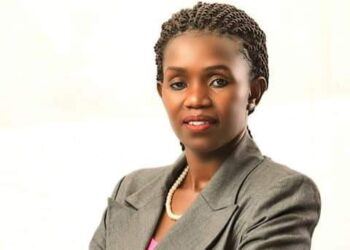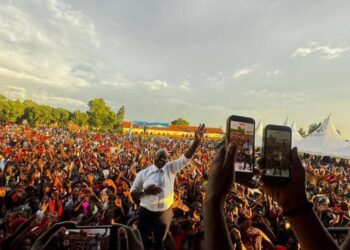A name, in every culture, is far more than a mere label but an identity, a statement, and a reflection of history and belief.
Every name carries a hidden meaning, a cultural story, and a lineage that connects one generation to the next. In Africa, names hold deep philosophical and spiritual significance. They tell who we are, where we come from, and what values our people hold dear.
When I meet someone called Sulaiman Okello, I instantly know a few things without needing to ask. “Sulaiman” tells me about his faith, most likely Muslim, while “Okello” reveals his ethnic roots from Northern Uganda among the Luo.
Similarly, when I meet Charles Ndugga or John Bainomugisha, I can tell from their names that they are Christians. Ndugga’s roots trace back to the Buganda region, while Bainomugisha’s lineage is from Western Uganda. This is the beauty of African naming: each name is a window into one’s heritage, a cultural compass pointing to one’s identity.
Contrast this with the Asian world. The Chinese, Japanese, and Koreans may share some physical resemblance, yet their names distinctly mark their heritage. You will not find a Chinese person named Nakamura, Yamamoto, or a Japanese person named Wang. Their names are sacred symbols of cultural continuity. The philosophy behind naming is identity preservation; to lose the name is to lose the roots.
Marcus Mosiah Garvey Jr., the Jamaican political activist and Pan-African leader, once warned that people who forget their history and culture are “like a tree without roots.”
His words remain profoundly true. He believed that the preservation of original African names was a powerful act of resistance and remembrance. Renaming children with foreign names that have no link to their ancestry, he argued, was one of the subtle ways through which Africans lose connection to their heritage.
For instance, if I name my child James William Frank, it may sound polished or “modern,” but in essence, I have stripped the child of an identity that connects him to his ancestors.
That child may grow up without knowing his people’s history or culture, and when asked where his name comes from, he will have nothing to say. But if I name him James William Frank Kalema. The name ‘Kalema’ will immediately declare his roots.
Names like Okello, Mugisha, Achieng, Nankunda, or Kasagga immediately evoke a sense of place, history, and belonging, something that Frank or William cannot provide in our context. However, to the original owners of these names in the West, they might have.
Alex Haley’s legendary film “Roots” portrays this power of names vividly. In it, a young African man, Kunta Kinte, captured and enslaved, refuses to accept the slave name “Toby.” Despite brutal punishment, he clings to his original African name because it is the last surviving link to his homeland and lineage.
Generations later, through his descendants, the name “Kinte” became a symbol of pride and resistance, a reminder that identity can never be fully erased.
Similarly, Barack Obama, the former President of the United States, found instant acceptance across Africa not because of his politics or skin colour but because of his name. The name “Obama” resonated deeply with Africans—it was a reminder of shared roots and heritage.
Had he been called Barrack Hazam Hussein, the emotional connection might not have been the same. His name carried the rhythm of Africa, echoing his father’s Luo ancestry from Kenya.
Even in the diaspora, African names stand as pillars of cultural identity. Take, for example, Zohran Kwame Mamdani, the Ugandan-American politician running for New York mayor. While the name “Kwame” identifies his African connection, “Mamdani” resonates more with Indian heritage, reminding us of Uganda’s rich cultural diversity.
If his name were Kwame Okurut Komakech, Ugandans from all corners would instantly claim him as their own. That is how names build a sense of belonging. Surprisingly, his name sounds much in the indian communities across Africa; they see him as theirs, not because of his skin but the name. He is a Ugandan, but the majority of Ugandans don’t know him due to his name.
Look at global football stars of African descent. Bukayo Saka, though an English international, proudly bears his Yoruba name “Bukayo,” which means “adds to happiness” or “added joy.” It was his grandmother who chose the name, ensuring that even though he plays under England’s flag, his identity remains rooted in Nigeria.
Bryan Tetsadong Marceau Mbeumo, of Cameroonian descent, carries a surname that instantly connects him to his African roots. Likewise, Eberechi Eze, another English player of Nigerian heritage, bears an Igbo name, “Eberechi”, meaning “God’s mercy.”
The name Eze means “king,” reflecting authority and nobility in Igbo tradition. Each of these names tells a story of faith, resilience, and origin.
All three players are black, come from Africa, and the two are from the same country but from different tribes. This classification is easily done based on their names without even interviewing them to detail. The names themselves do self-introductions.
Sadly, in many African societies today, especially in Uganda, a worrying trend is emerging. Many parents are abandoning traditional names in favor of foreign ones, often under the influence of religious leaders who wrongly claim that African names are linked to demons or paganism.
This narrative is misleading and dangerous. A name is not demonic; it is identity, history, and a link to ancestry. To reject our names is to reject ourselves.
During the Civil Rights Movement, Malcolm X (born Malcolm Little) dropped his surname “Little” because it was a “slave name.” By adopting “X,” he symbolized the unknown African surname lost through slavery. This act was a declaration of freedom and reconnection to his roots. The same struggle for identity was echoed in Kunta Kinte’s story. Both men, centuries apart, fought against erasure, the erasure of name, identity, and culture.
In Uganda, this issue has taken a new form. I have watched videos of certain Muslim sheiks urging followers to abandon African names for Arabic ones, even going as far as permitting marriages within the same clan, claiming that Islam erases such taboos.
Similarly, some Pentecostal pastors encourage inter-clan marriages under the claim that “in Christ, there are no clans.” This is cultural recklessness. Our ancestors were not ignorant when they established clan systems and totemic taboos. These traditions safeguarded morality, family unity, and biological health within communities.
Adopting names like Abdullah Kassim Umar is not wrong. But it becomes richer when combined with an African name like Kassaga, Nsubuga, Mugisha, or Okello. This combination preserves both faith and heritage. Likewise, naming a child Joshua, Jesus, or Moses may sound religiously upright, but without an ancestral name, the child’s identity becomes culturally hollow.
When Islam first spread in Uganda around 1844, Buganda’s officials adopted Arabic names for converts but retained Kiganda names. That dual identity, religious and cultural, was seen as essential. It is why even today, Ugandans proudly bear names like Abdullah Karim Kalema or Shamim Nakagwa.
The African surname helps trace clan and lineage, preventing forbidden marriages within the same family line. Without such surnames, people risk marrying within their clan unknowingly, a serious cultural and moral violation in Buganda and beyond.
Imagine if Abdullah Karim Kalema and Shamim Najjuko dropped their African surnames. They could easily end up marrying, unaware that they share the same clan. Such practices are considered incest in Buganda’s cultural code, something our ancestors guarded against for centuries.
Clan identity (ekika) and totem (omuziro) are not superstitions; they are social systems designed to preserve harmony, order, and moral discipline.
We must, therefore, reject the misguided teachings of any sheik, pastor, or priest who encourages the abandonment of African names. Names like Namaganda, Okello, Achen, Kaitesi, Muhirwe, Oketcho, Kateregga, Mugisha, or Okurut are not symbols of backwardness, but living records of who we are. They connect us to our roots, our clans, and our ancestors.
Africa’s greatest treasure lies not in her minerals or wildlife, but in her people’s identity. Our names are that identity. They tell the story of our existence, our struggles, and our triumphs. Losing them is losing ourselves.
Let the pastors, imams, and prophets preach faith, but let them not erase our heritage in the process. The soul of Africa lives in her names, and these names must walk proudly alongside any religious identity we choose.
Therefore, let us continue to give our children names that reflect who we are, where we come from, and what we stand for.
Because an African without an African name is like a tree without roots.
Do you have a story in your community or an opinion to share with us: Email us at editorial@watchdoguganda.com













